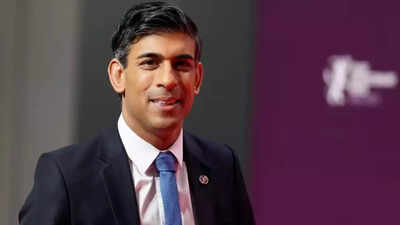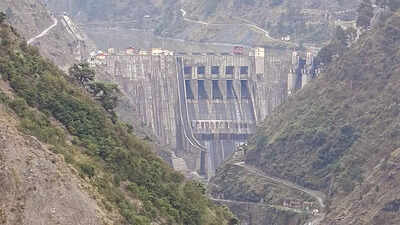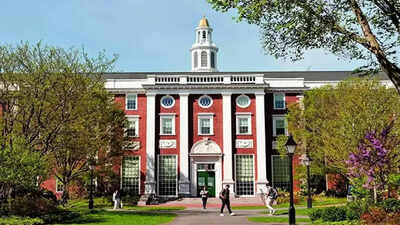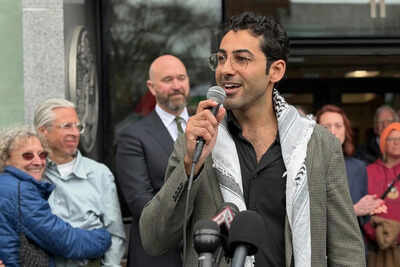Rishi Sunak education qualification: When Oxford bred the thinker and Stanford built the strategist

What if leadership wasn’t forged in corridors of power, but in quiet libraries, late-night study groups, and classrooms where the stakes were ideas, not elections? Before Rishi Sunak found himself juggling the UK economy and navigating global politics, he was a student making choices that would quietly define the way he thinks, leads, and governs.His education, stretching from the timeworn traditions of Winchester and Oxford to the innovation-fuelled energy of Stanford, wasn’t a straight line to politics. It was a carefully woven map of curiosity, ambition, and cross-continental learning. And in many ways, it tells you more about the man behind the policies than any political résumé ever could.
Winchester: Where the questions began
Rishi Sunak’s academic path began not with a campaign strategy, but at Winchester College, one of Britain’s oldest and most intellectually demanding schools. This wasn’t the kind of place where students coasted through on charm and polished grammar. Winchester was designed to stretch its students. It demanded deep reflection, academic rigor, and the kind of intellectual patience most teenagers do not yet know they are capable of.Here, Rishi Sunak encountered ideas that refused easy answers. He developed his early fascination with the structure of arguments, governance, and economic systems. Though the school’s curriculum leaned classical, the approach to thinking was far from dated. Students were encouraged to question, to debate and occasionally to discard long-held beliefs. These years sowed the seeds of what would later become a hallmark of his leadership style: an ability to absorb complexity without losing clarity.
Oxford: The laboratory of leadership
If Winchester sparked the questions, Oxford taught him how to pursue them with discipline. At Lincoln College, Oxford, Rishi Sunak studied Philosophy, Politics and Economics (PPE), a degree synonymous with British leadership. But PPE wasn’t about memorising facts or aligning with ideologies. It was about disassembling complex realities to understand how they actually work.Rishi Sunak learned to interrogate policy, trace the moral undercurrents of political decisions, and anticipate the consequences of economic moves. The lectures were only one part of the education. Just as formative were the heated discussions in seminar rooms and the quiet hours spent decoding the writings of economists and philosophers.Oxford also taught him how to live in the grey. It was an environment where conflicting theories could both be valid and where intellectual flexibility was not a luxury but a necessity. The ability to toggle between perspectives, whether economic or ethical, would later prove indispensable as he navigated high-stakes decisions during national crises.
Stanford: The shift from theory to traction
After Oxford’s stone libraries came something radically different. At Stanford Graduate School of Business, set in the pulse of Silicon Valley, Rishi Sunak found himself in a world that moved fast and thought globally. He had traded historic halls for glass-walled innovation labs and traditional lectures for start-up pitches.His MBA experience was a conscious leap into a new way of thinking. Stanford didn’t just value business acumen. It prioritised experimentation, collaboration, and impact. Rishi Sunak studied alongside a multicultural cohort where classroom conversations often turned into prototype ideas. The focus was not just on what worked in the past, but on what could be designed for the future.At Stanford, risk was not feared but studied. Entrepreneurship was not confined to tech start-ups; it was a mindset applied to public service, healthcare, finance, and education. For Rishi Sunak, this broadened his understanding of leadership. He saw how innovation intersects with governance and how policy can be shaped to serve the next decade, not just the next quarter.He also built relationships with peers who brought varied perspectives, from product designers and venture capitalists to social impact leaders. These networks became part of his extended learning, long after formal education ended.
From education to execution
After Stanford, Rishi Sunak did not take a detour. He transitioned seamlessly from theory to practice. He worked as an analyst at Goldman Sachs and later joined the hedge fund TCI, before co-founding Theleme Partners. These roles called for interpreting risk, predicting market behaviour, and understanding how global economies are interlinked.This phase was not just about finance, it was about sharpening his decision-making and applying the analytical tools he had gathered over the years. When Rishi Sunak became Chancellor of the Exchequer during the COVID-19 pandemic, those years became highly relevant. Designing emergency relief schemes, evaluating fiscal trade-offs, and communicating economic decisions to the public — all required the ability to act quickly without compromising on clarity. His academic and professional past gave him a rare blend of confidence and caution.
Lessons for learners today
Rishi Sunak’s academic journey is not important because of institutional prestige alone. What makes it valuable is the intent behind every decision. Winchester trained him in discipline and intellectual stamina. Oxford helped him build frameworks to understand governance and ethics. Stanford gave him global fluency, entrepreneurial courage and strategic range.In an era where students are often guided by rankings, placements or peer pressure, his journey offers a quieter but stronger lesson: choose learning environments that challenge your certainty and refine your instincts. Seek mentors and peers who teach you to think from multiple vantage points. Allow education to be not just a bridge to opportunity, but a compass that keeps your direction honest.As Rishi Sunak once wrote, “Improving education is the closest thing to a silver bullet there is. There is no better economic policy, no better social policy and no better moral policy than a world-class education.”His own life is living proof of that belief. He did not simply pass through prestigious institutions. He allowed them to shape his instincts, stretch his thinking and prepare him to lead in unpredictable times.For today’s students and professionals, that is perhaps the most important takeaway: education is not a checklist. When pursued with purpose, it becomes the most valuable preparation for the future you cannot yet see.TOI Education is on WhatsApp now. Follow us here.






